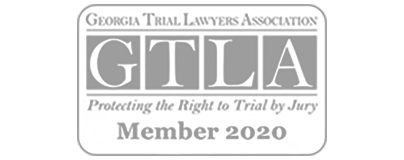Home | Glossary of Personal Injury Terms | Breach of Duty
Breach of Duty
Personal injury claims often hinge on the concept of negligence, a legal term that denotes a lack of care or consideration. Within negligence, there are four critical components duty of care, breach of duty, causation, and damages. Successfully demonstrating these elements is essential to establish the liability of the defendant in any given incident.
The Four Components of Negligence
To succeed in a personal injury lawsuit, a claimant must effectively prove each of the following four facets of negligence:
Duty of Care
Duty of care refers to the legal or moral responsibility that one party has toward another. This obligation varies depending on the relationship between the individuals involved. For instance, drivers are expected to operate their vehicles safely to prevent harm to others on the road. Similarly, a skilled forklift operator must manage their equipment judiciously to avoid accidents.
Breach of Duty
A breach of duty occurs when an individual fails to uphold the expected standard of care. For example, if a driver becomes distracted and collides with another vehicle, this act demonstrates a breach, as they did not exercise the necessary caution required while driving.
Causation
Causation links the breach of duty to the resulting injury. To prove this element, it must be shown that:
- The injuries would not have happened if it weren’t for the defendant’s negligence.
- The injuries were a natural outcome of the defendant’s actions.
For instance, a distracted driver should reasonably anticipate that diverting their attention from the road could result in an accident.
Damages
Lastly, the claimant must establish that they experienced actual harm due to the defendant’s actions. If an individual is involved in an accident and does not suffer injuries, they cannot satisfy this element of negligence.
The Reasonable Person Standard
In personal injury law, the “reasonable person” standard serves as a benchmark for determining whether a breach of duty occurred. This individual is presumed to act with caution and prudence under similar circumstances. The assessment of what constitutes reasonable behavior can vary; it may depend on the specialized skills of the individual, such as what a competent truck driver or electrician would do in a specific situation. Often, the determination of reasonableness is left to a jury, prompting many parties to settle disputes outside of court.
Standard of Proof in Personal Injury Cases
In civil litigation, the claimant must demonstrate that negligence occurred more likely than not, which is known as a “preponderance of the evidence.” This requires substantiating all four components of negligence—duty, breach, causation, and damages—under this evidential standard. Various methods can be employed to prove a breach of duty, including presenting pertinent evidence and expert testimony.
Role of Expert Witnesses
Expert witnesses play a pivotal role in personal injury cases, as they possess specialized knowledge relevant to the case at hand. Courts require that these witnesses be qualified before their testimony can be admitted as evidence. For example, an accident reconstruction expert might provide insights in a wrongful death case stemming from a motorcycle crash. The defense may also present its own expert, leaving the jury to weigh the credibility of each expert’s testimony.
Comparative Fault in Breach of Duty Cases
Occasionally, multiple parties may share responsibility for a breach of duty. When this occurs, jurisdictions like Georgia utilize comparative fault principles. If the matter proceeds to court, the judge or jury will assign a percentage of fault to each party involved. For example, if a court deems a plaintiff 25% responsible for an accident while the defendant is 75% responsible, the court will reduce the awarded damages by the plaintiff’s percentage of fault. If the plaintiff’s fault reaches 50% or more, they may be barred from receiving any damages. Parties’ expectations of potential court outcomes influence settlement negotiations. If an agreement is not reached, a trial may be necessary.

GEORGIA PERSONAL INJURY LAWYER NEAR ME
Get Legal Guidance to Prove Breach of Duty
While individuals may be capable of handling minor claims independently, larger and more complex cases often require legal representation. Insurance companies and defendants typically have teams of lawyers dedicated to minimizing payouts. A knowledgeable personal injury attorney can navigate these challenges, advocating for a fair settlement on behalf of the claimant and ensuring that all aspects of negligence are thoroughly addressed.
In conclusion, understanding the intricacies of breach of duty within personal injury law is crucial for navigating the legal landscape. By grasping these foundational elements, claimants can better prepare themselves for the pursuit of justice and compensation.
GET A FREE CASE REVIEW
PRACTICE AREAS
Frequently Asked Questions?
Do I need a personal injury attorney?
The Jewkes Firm is well-versed in effectively challenging major insurance companies on your behalf to secure the highest settlement permissible by law. Our primary objective is to ensure your optimal recovery. It is only after this point that we assess the worth of your case.
What is the deadline for filing an injury case in Georgia?
The timeframe for filing an injury case, also known as the statute of limitations, can vary significantly. As per OCGA §9-3-33, you are granted a two-year period from the date of your injuries or the passing of a family member to initiate your personal injury claim.
What is the cost to hire a personal injury attorney?
There is no upfront cost associated with hiring a personal injury lawyer. Our fees are based on a percentage of your settlement, meaning you only pay if we successfully recover compensation. Our top priority is ensuring your well-being and helping you return to your normal life.
What damages can you recover from a personal injury?
A personal injury lawyer aims to establish negligence and seek restitution for the harm caused by the liable party. Additionally, you may be entitled to compensation for funeral costs, medical expenses, and income lost if you are a family member of someone who died as a result of an injury.
Free Case Evaluation











